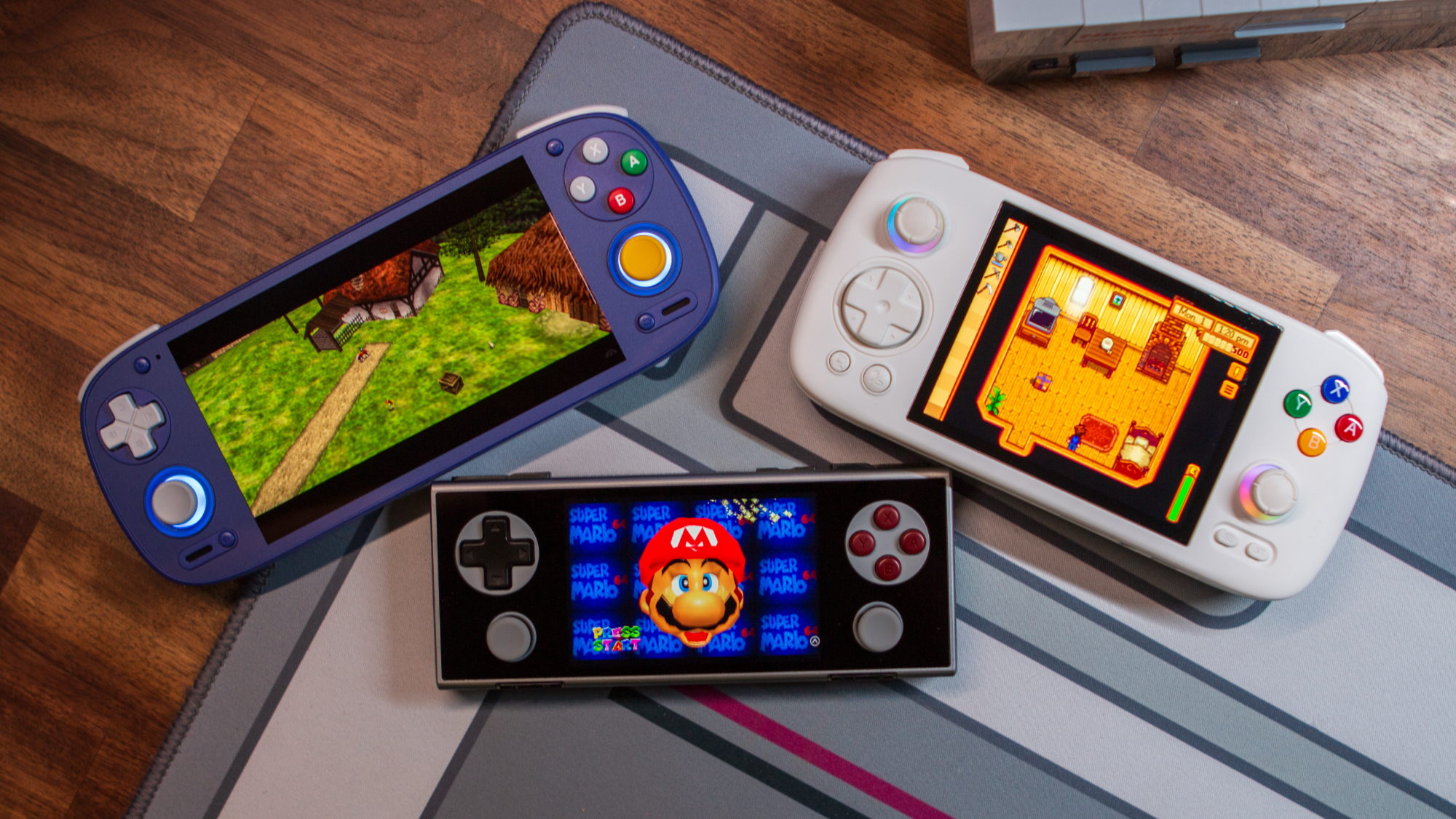JBL Charge 3 and Clip 2 prove there's still innovation in Bluetooth speakers
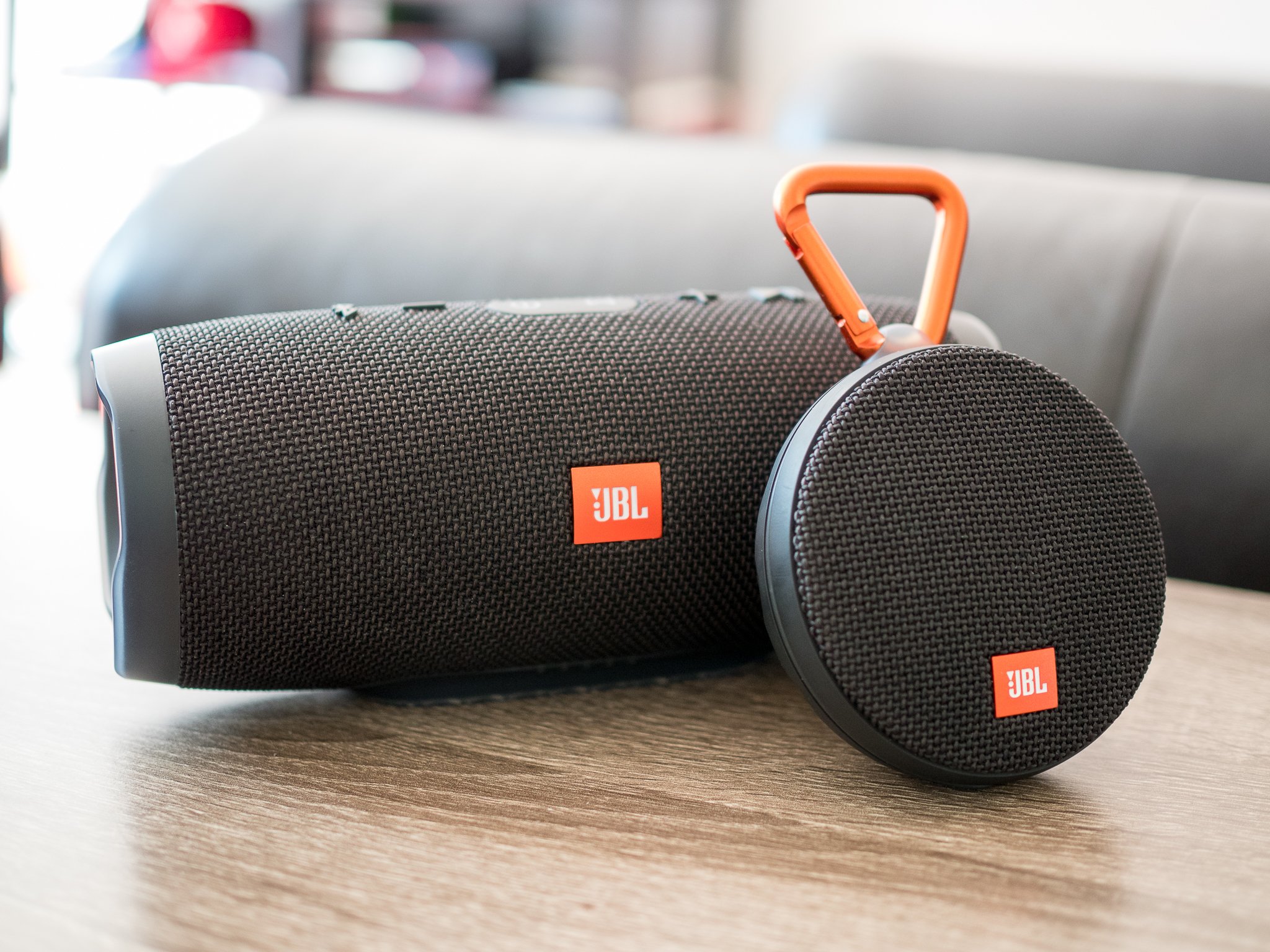
No matter your needs, there's a Bluetooth speaker out there to match — and you don't have to look hard to find one, either. For most people, their only real need is "the cheapest price possible" — but many will pay a bit for better features, quality and sound. And that's where JBL comes in, with the latest iterations of two of its Bluetooth speakers — the Charge 3 and Clip 2.
JBL isn't in the race to the bottom. It's hoping to stay on the higher end with high quality materials and of course sound, with some great features that can help turn a Bluetooth speaker experience from an "every once and a while" thing to an every-day useful accessory. Let's take a look at the JBL Charge 3 and Clip 2 speakers.
JBL Charge 3
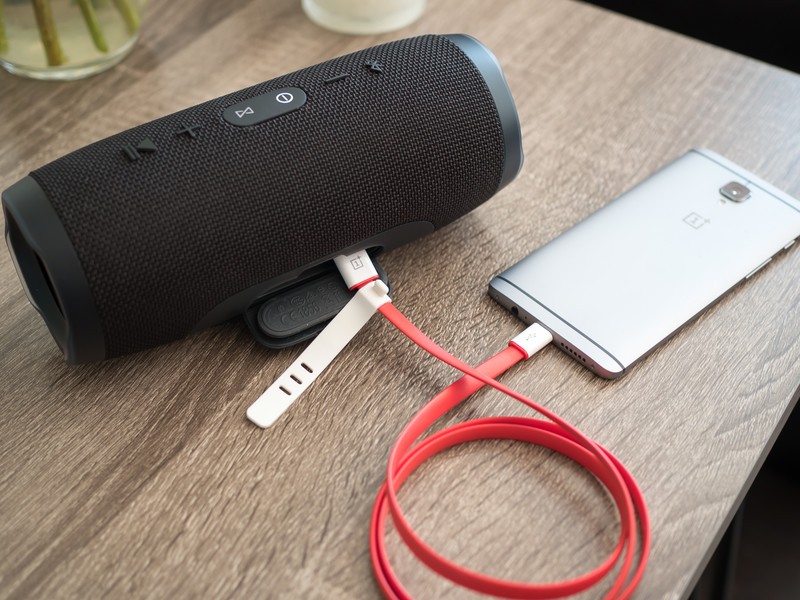
The JBL Charge 3 is designed to be the center of the party or fill a room with sound, and that's immediately apparent with its size — larger than your average reusable water bottle, and weighing in at about 1.75 pounds. That weight comes from a sturdy, IPX7 waterproof enclosure that protects dual 10W speakers along with huge passive radiators on the ends that drive up the bass level.
With this much output you shouldn't be surprised that the Charge 3 has a 6000 mAh battery inside, which can offer you 20 hours of playback over Bluetooth. You probably aren't going to use it for that long (or heck, even half that long) between charges, so JBL also gives you the option of tapping into that power with a full-sized USB port on the back that can be used to charge your phone at 2A from 5V, which is a typical rate for a non-Fast Charge AC adapter.
It's extremely handy if you've been streaming music from your phone to the speaker, but also nice to have for anyone else who's with you that needs a quick top-up. The speaker gives you a visual indication of its charge state with a set of LEDs in the base, and charges itself over Micro-USB with a cable and 5V/2.3A wall plug in the box if you need one.
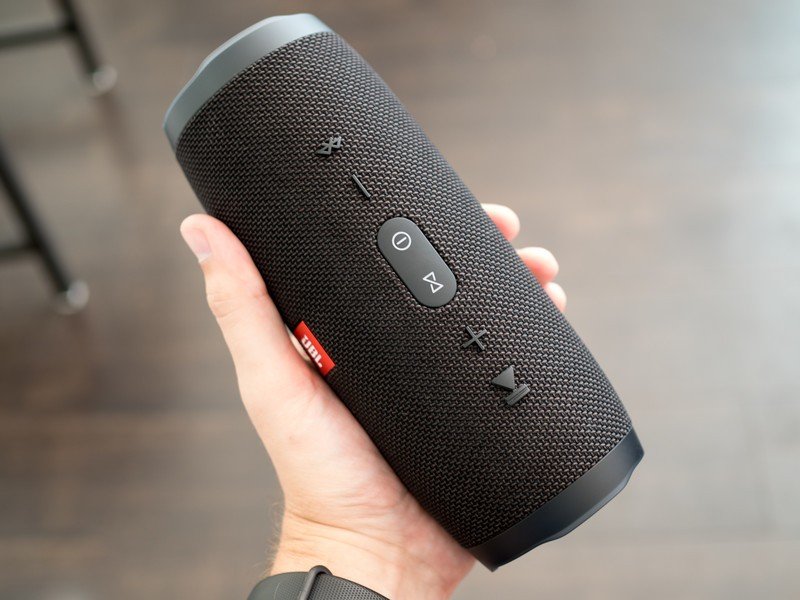
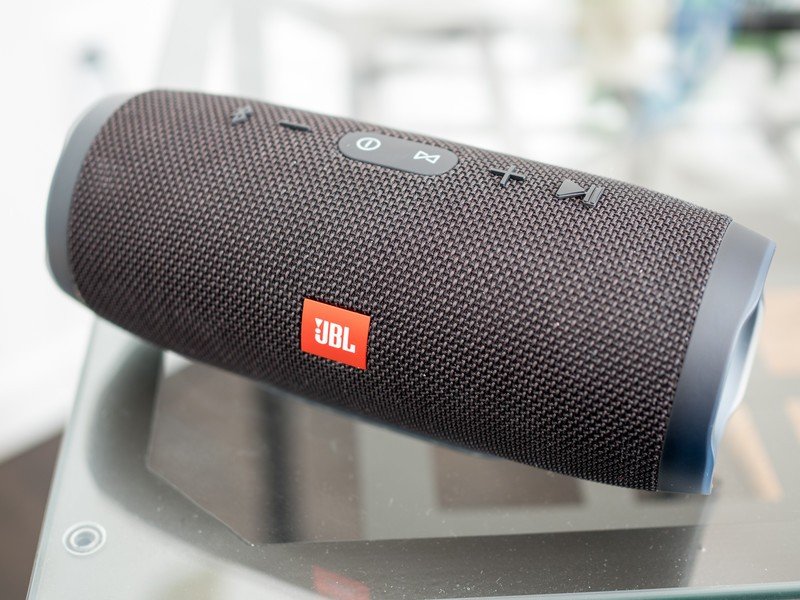
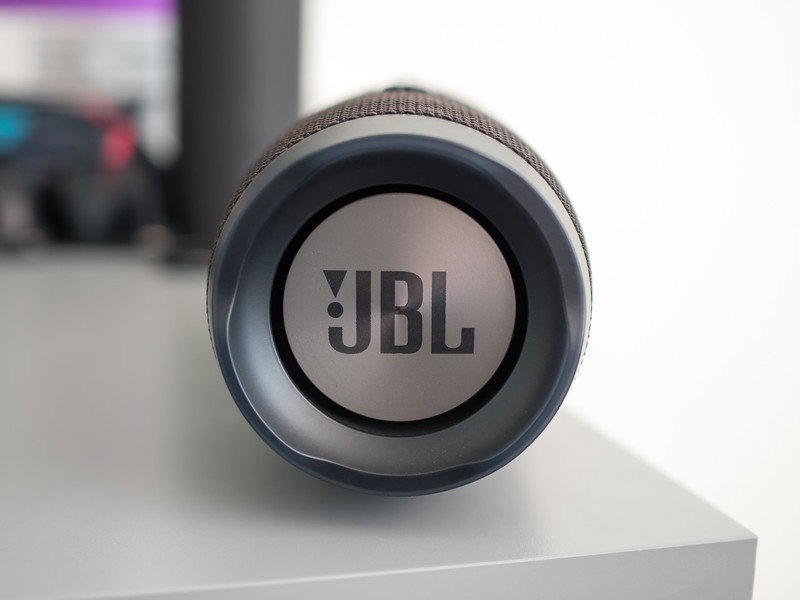
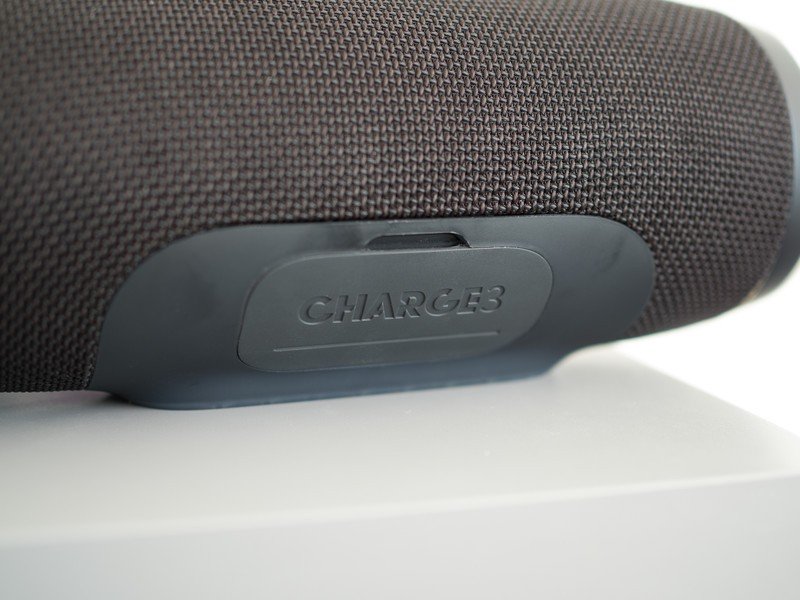
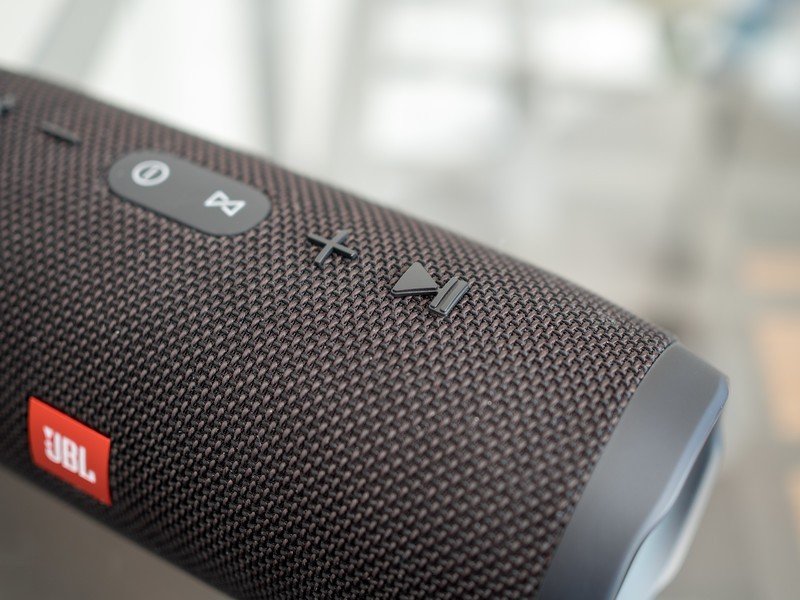
Because of its size and weight you aren't likely to be carrying the Charge 3 around much — it's mostly going to stay put on a coffee table or brought out to the pool or picnic table when you need music for a group. I actually mostly kept it at my desk for daily music listening, both from my computer over a 3.5mm cable and my phone over Bluetooth — and it performed far better than my set of Logitech computer speakers, at a fraction of the size and complexity. Indoors there was no reason to ever get it above about 50% volume, and I rarely needed to max it out to get the music loud enough outside, even for a big group of people.
It sounds as good as you'd expect at $150, and has a bunch of extra features.
At $150 this isn't exactly an impulse purchase (nor is it JBL's most expensive Bluetooth speaker), but if there's one thing that companies like JBL, Jawbone, Bose and countless others have shown us it's that people are willing to pay a pretty penny for a really good, loud wireless speaker with some extra features. That's exactly what you get with the Charge 3. Not only does it produce full sound with lots of bass out of a relatively small package (compared to big wired speakers), it's also tough and completely waterproof so you never have to worry about what happens to it. It also goes above and beyond to let you tap into its battery to charge your phone, which can prove pivotal in keeping the tunes going late into the night.
Be an expert in 5 minutes
Get the latest news from Android Central, your trusted companion in the world of Android
It won't be worth the money to everyone, but it's hard to argue that JBL isn't giving you plenty for your money here if you're looking for a big wireless speaker. (And if you want to save a bit, maybe consider the last-gen Charge 2+ for about $99.)
JBL Clip 2
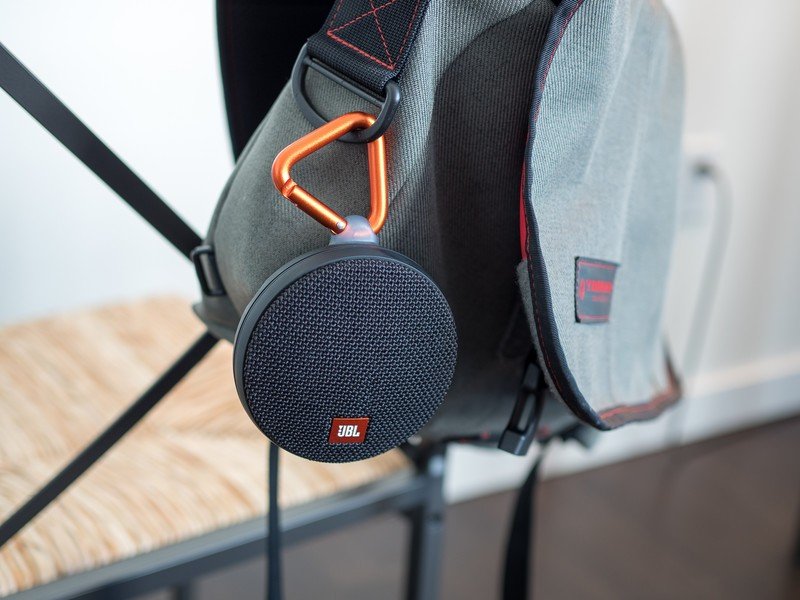
For as cool as the Charge 3 speaker is, I'm a bigger fan of the small JBL Clip 2 and I think it'll be one that more people will actually consider buying and using on a regular basis.
This little $60 speaker is roughly the size of a hockey puck but still offers some great sound from its single 3W speaker — even up to high volumes without distorting. It connects over Bluetooth, of course, and offers easy-to-press buttons around the edges for play/pause and volume control — you can also use a built-in microphone for calls via your connected phone. Better yet, there's also a built-in foot-long 3.5mm cable to plug in — that neatly wraps around and stores in the speaker — which is super useful when you're passing the speaker around at a get-together and or don't want to deal with Bluetooth pairing.
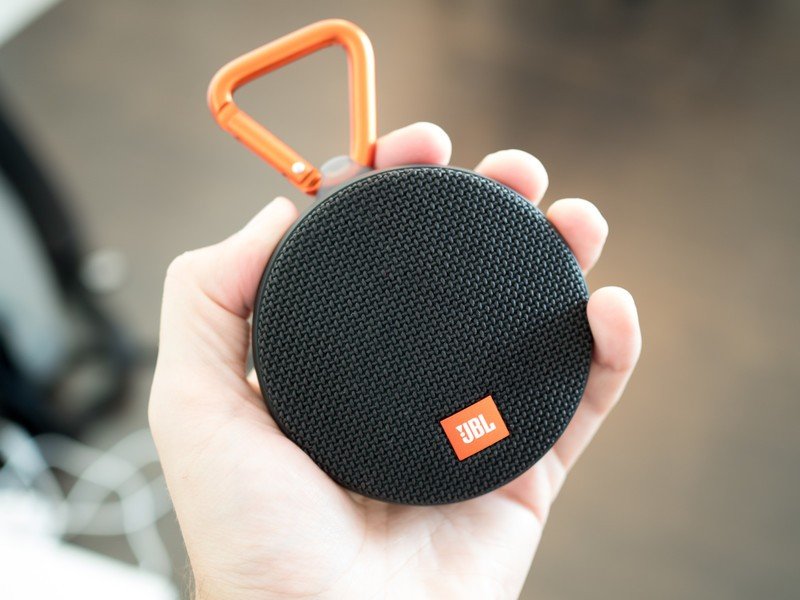
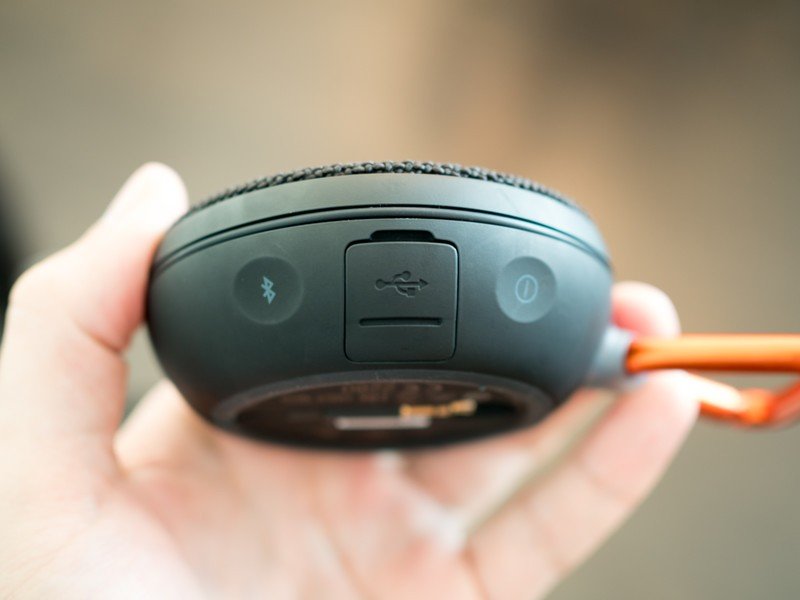
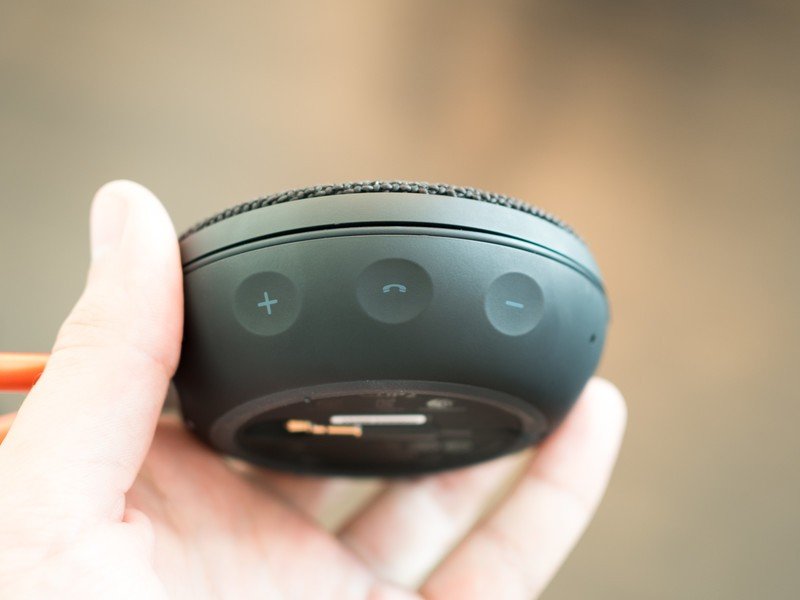
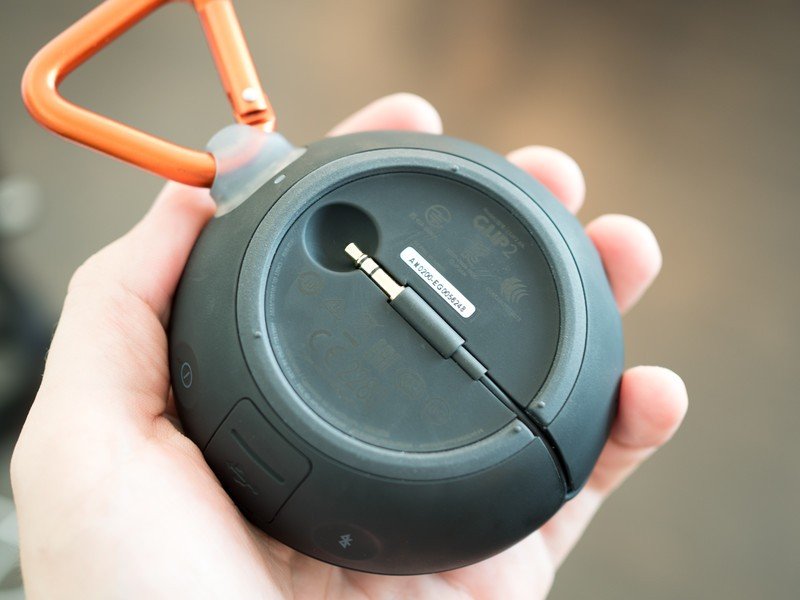
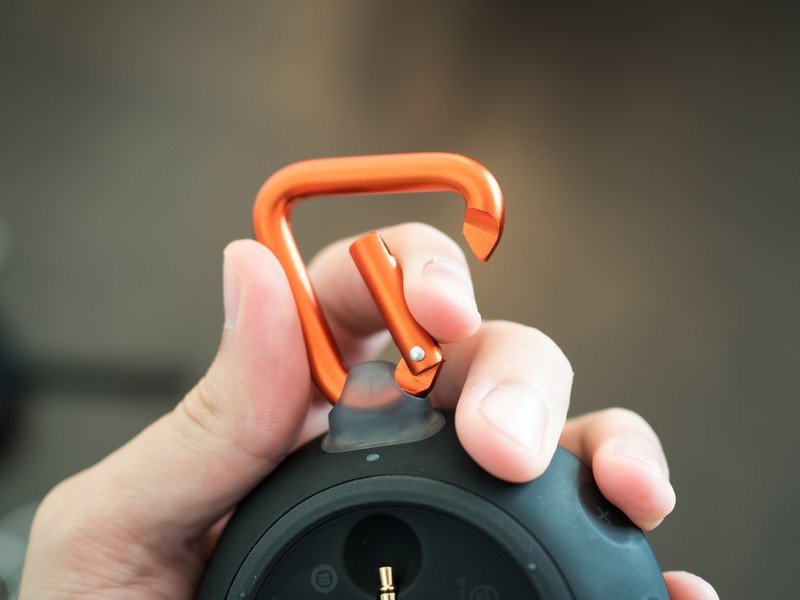
The speaker is built to take a beating, and feels like you could drive a nail with it if you needed to (but seriously, don't do that). It's also fully IPX7 waterproof, with a robust rubber door over the Micro-USB charging port, allowing it to handle dirt and even full submersion in water. Its rugged abilities are exemplified by the carabiner that's attached to the side of the Clip 2 (the name makes more sense now, huh?) that lets you hook it on things wherever you go.
When a speaker is built this well, it goes with you and you use it more.
I clipped it on the outside of my messenger bag or backpack to carry it places, not being worried about it getting bumped and knocked around. I clipped it to my pants pocket so I could listen to music around the house as I took care of some chores, and found it particularly useful to hook on the shower curtain in the morning for podcast listening in the shower.
JBL claims eight hours of music playback, and I found that to be perfect for a week's worth of casual listening off and on around the house. It also powered through several hours of Bluetooth music streaming for my Fourth of July party with battery to spare — and again, I never had to worry about it getting bumped or dropped.
I found the rugged Clip 2 to be infinitely more useful than other standard Bluetooth speakers that are more fragile and don't have a clip, and because of its design elements I carried it around and used it more than any other speaker I've had. It's more expensive than the dime-a-dozen Bluetooth speakers online, but you get something for it — and with how much more you're likely to use it, it's worth it.
Andrew was an Executive Editor, U.S. at Android Central between 2012 and 2020.

